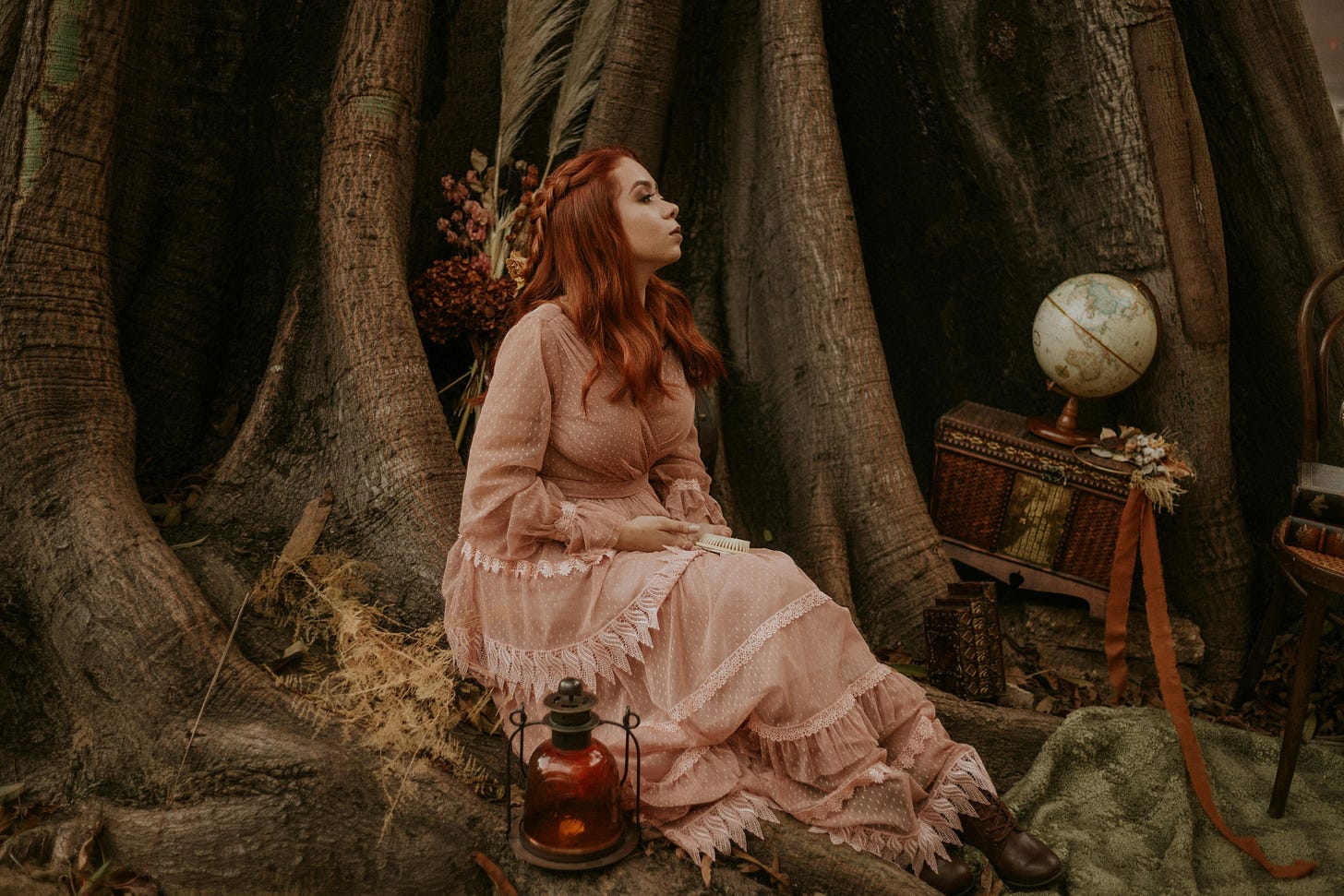Framing Your Memoir Through the Fairytale Lens
The first important step is to look at the big picture
Photo by lucas mendes
Memoirs are our modern fairy tales.... The autobiographer is faced with the daunting challenge of attempting to understand, forgive, and even love the witch... -Francine Prose, The New York Times Book Review
Once upon a time, Little Red lost their voice. As a survivor of childhood abuse, they were afraid to tell their story. They figured their abuser would accuse them of lying. They also felt shame and worried about what people might think if the truth got out.
Keeping secrets left Little Red without a voice, and even when they thought of speaking up, they didn’t know where to begin.
Then, one day, a fairy godmother blew in with the autumn leaves, carrying a basket of tools. She showed Little Red how to craft their story in a way that would captivate others. Taking the basket of tools, Little Red began to carve their story down to the essentials, and soon, the entire neighborhood came out to listen.
Little Red discovered they were not alone. Others had survived similar nightmares. People were grateful to hear Little Red’s story because it gave them hope and made them feel less alone.
Little Red is the symbol of all who were harmed in the name of love.
Do you have a story to tell? Do you dream of writing a book? Have you ever thought about writing your memoir like a fairy tale?
I’m not suggesting you make stuff up—that wouldn’t be a memoir. Memoirs are about true experiences, but looking through the lens of a fairytale might give you a new perspective.
You don’t need to make stuff up because your story is gold. If you tell it right, it will glow. Besides, the truth is often stranger than fiction. What I’m suggesting is that you borrow the elements from fairy tales to frame your memoir.
If you grew up like Jeanette Walls or Tara Westover in poverty, abuse, or with irresponsible parents, there’s a chance you took on shame due to your parents’ drinking, beating, enslaving, gaslighting, or even scapegoating you. This shame was never yours to wear. Like Cinderella’s old clothes, it was like a tattered hand-me-down that never fit you.
Framing your story through the fairytale lens can help you see that, like Cinderella, you weren’t responsible for all the bad things that happened to you. The fairytale lens removes the stigma and shame heaped on us from our abusers by reminding us that Cinderella and Belle didn’t hang their heads. In fairy tales, shame always points to the abuser where it belongs.
This first and vital lesson about framing your memoir through the fairytale lens might not be a technical writing skill, but survivors need to let go of their shame so they can write their stories. If you have been called the black sheep or you’ve been scapegoated by your family, you might know that you are telling the truth but still feel the shame heaped on you by the narcissist and their flying monkeys.
Casting off the shame is also crucial because family members might challenge your story. It’s essential to get the facts straight in your head before you write your book. This way, when threats come up, you can remember that you are the hero in your story and not the abuser. Your abuser would like to cripple you with their projected shame to prevent you from telling your story.
I have so much more to tell you, but for now, ask yourself these questions about the characters in your memoir.
“If my memoir were a fairytale, who would be the villain, and who would be the hero?
”Who would be my kindred spirit or fairy godmother?
Of course, the members of your family are more than these stereotypes, but as a family member, you’ve been blinded by your proximity to them. To see their true character, you might need to step back from a distance to look at their overall behavior. Remember, people have character arcs, so it’s possible that your abuser has changed since you were a child. It’s still okay to write about the past. They might have changed, but for now, in order to write your memoir, you’ll need to focus on where your story begins.
Step one in writing your memoir as a fairy tale is to look at your story and place the shame where it belongs—in the past, with Cinderella’s rags.



Excellent little article!